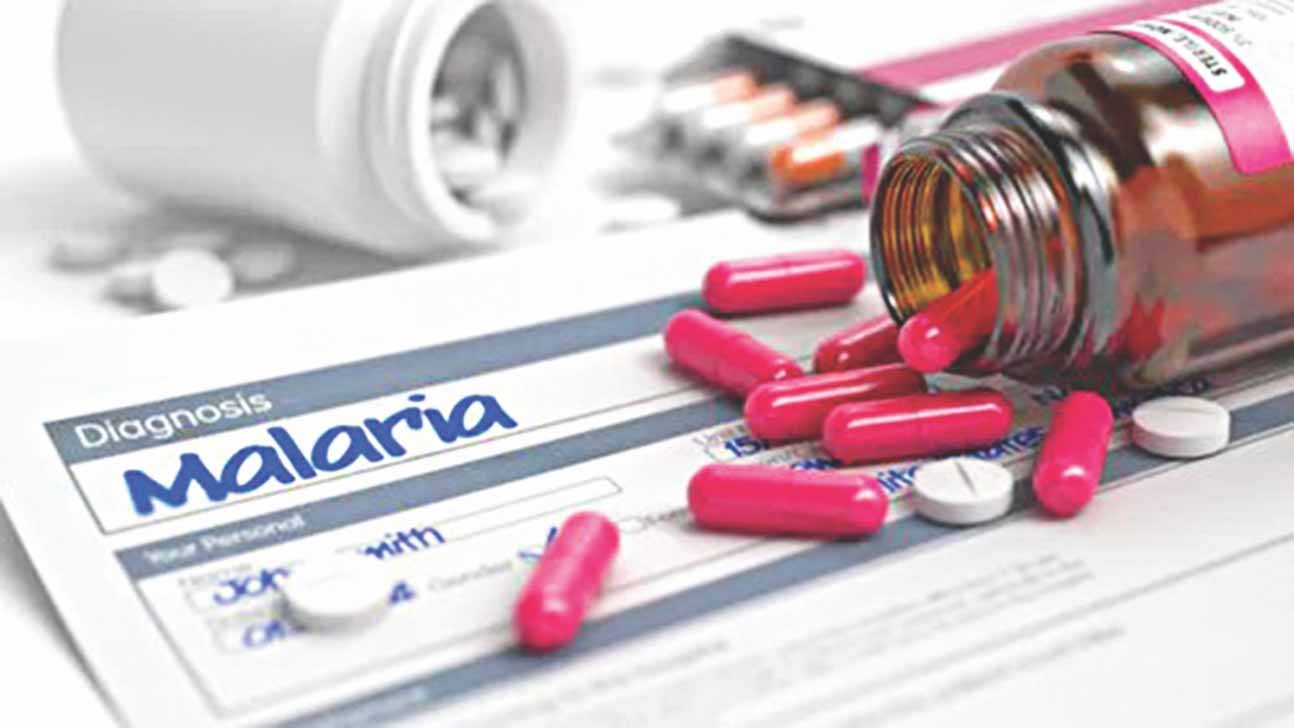- Home
- Editorial
- News
- Practice Guidelines
- Anesthesiology Guidelines
- Cancer Guidelines
- Cardiac Sciences Guidelines
- Critical Care Guidelines
- Dentistry Guidelines
- Dermatology Guidelines
- Diabetes and Endo Guidelines
- Diagnostics Guidelines
- ENT Guidelines
- Featured Practice Guidelines
- Gastroenterology Guidelines
- Geriatrics Guidelines
- Medicine Guidelines
- Nephrology Guidelines
- Neurosciences Guidelines
- Obs and Gynae Guidelines
- Ophthalmology Guidelines
- Orthopaedics Guidelines
- Paediatrics Guidelines
- Psychiatry Guidelines
- Pulmonology Guidelines
- Radiology Guidelines
- Surgery Guidelines
- Urology Guidelines
Active molecule in Psoriasis drug shows activity against malaria

Netherlands: Malaria is a global health concern contributing to around 400,000 deaths annually. When it comes to its treatment, the most challenging part is the resistance developed by malaria parasite against most of the drugs. This necessitates novel drug targets and molecules capable of targeting different stages of the parasite. With this perspective, an international team of researchers has come up finding an active pharmaceutical ingredient (API)-- primarily used in psoriasis drugs-- which has shown strong activity against malaria. The results were published in the journal Science Translational Medicine.
This active molecule called pantothenamides, has been modified by the team to increase its stability in humans. The new compounds stops the malaria parasite from replicating in infected humans and from being transmitted to mosquitoes and are effective against malaria parasites resistant to currently available drugs. The team found that the modified pantothenamide molecules not only interfere with the development of the malaria parasite during its asexual growth phase in the blood but also prevent transmission of the sexual form of the parasite from human blood to mosquitoes.
"We have known for a long time that pantothenamides are extremely potent against the malaria parasite, but they become unstable within biological fluids because an enzyme clips them apart before they can act," said Manuel Llinás, professor of biochemistry and molecular biology and of chemistry at Penn State and an author of the paper. "Our team of collaborators, led by Koen Dechering at TropIQ Health Sciences and Joost Schalkwijk at Radboud University Medical Center in the Netherlands, found that changing a chemical bond in a pantothenamide molecule prevents this clipping, making it viable for use as a new antimalarial drug."
"By also preventing the transmission of malaria parasites from infected people into mosquitoes, these pantothenamides can reduce the chances that mosquitoes will be infectious to others," said Llinás. "It is currently widely accepted that next-generation antimalarial drugs must target the parasite at multiple stages to both cure the disease in an infected individual and prevent its spread to others."
Llinás and Erik Allman, a postdoctoral scholar at Penn State at the time of the research, investigated exactly how the four most potent molecules in the compound class kill the malaria parasite. Specifically, they examined how these compounds affect the parasite's metabolism while growing in human blood.
The team discovered that, because the pantothenamide molecule closely resembles the essential vitamin B5, it is mistakenly taken in and metabolized by the parasite. This leads to the formation of molecular analogs, or antimetabolites, which decrease the parasite's production of acetyl-CoA, a compound critical for its survival.
The team discovered that, because the pantothenamide molecule closely resembles the essential vitamin B5, it is mistakenly taken in and metabolized by the parasite. This leads to the formation of molecular analogs, or antimetabolites, which decrease the parasite's production of acetyl-CoA, a compound critical for its survival.
"The molecule has a mechanism of action that hasn't been used before," said Dechering. "This means that there's no resistance to the drug as yet, and it is effective against many forms of malaria. Because parasite resistance to malaria drugs is a major problem worldwide, we are very close to a breakthrough."
"Pantothenamides have simple chemistry, so they are easy and inexpensive to make," said Llinás, "And we now know their mode of action, which we don't always know before moving into drug development. This makes pantothenamides excellent candidates for further development and eventual clinical trials."
For more details, click on the link
Antimalarial pantothenamide metabolites target acetyl–coenzyme A biosynthesis in Plasmodium falciparum. Science Translational Medicine, 2019; 11 (510): eaas9917 DOI: 10.1126/scitranslmed.aas9917

Disclaimer: This site is primarily intended for healthcare professionals. Any content/information on this website does not replace the advice of medical and/or health professionals and should not be construed as medical/diagnostic advice/endorsement or prescription. Use of this site is subject to our terms of use, privacy policy, advertisement policy. © 2020 Minerva Medical Treatment Pvt Ltd